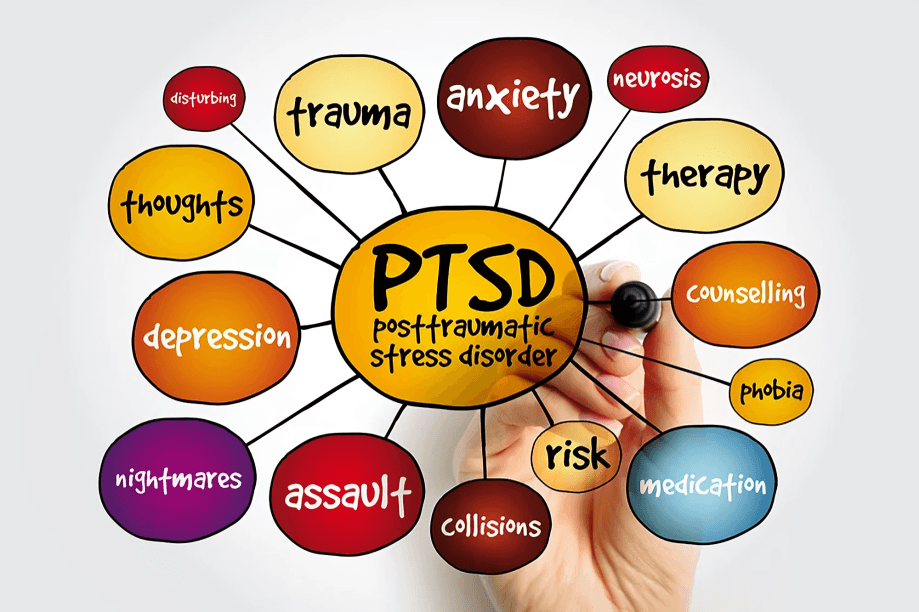
“
Living with chronic illness and mental health challenges can be emotionally draining. Long-term diseases do more than weaken the body—they strain the mind, often leading to anxiety, isolation, or depression. Emotional health becomes entangled with daily struggles of managing symptoms, medications, and lifestyle changes.1
1
”
Doctors studying chronic illness and mental health report that long-term diseases can double the risk of depression and anxiety, especially when physical limitations hinder independence and personal goals. 1
The unpredictability of chronic illness symptoms leads to frequent emotional distress. When individuals cannot plan their lives confidently, anxiety and uncertainty become regular mental health challenges. 2

Many with chronic illnesses face feelings of isolation. Physical limitations and a lack of understanding from peers can create a sense of being socially disconnected, which worsens emotional pain
Lack of control is a major factor linking chronic illness and mental health. Losing autonomy over your body and lifestyle can generate fear, helplessness, and long-lasting mental unease. 3
Mood disorders are common among chronically ill individuals, with conditions like fibromyalgia or lupus linked to higher risks of depression due to both neurological and lifestyle-related factors. 4
Chronic illness often disrupts sleep, which further worsens mental health. Inadequate rest impairs the brain’s ability to regulate emotions, deepening feelings of sadness, agitation, or hopelessness. 5
Daily medication routines and side effects can affect emotional balance. Some medications may alter brain chemistry, while the ongoing need for them can serve as a constant reminder of one’s illness. 6
Struggling with self-image is another mental burden. Visible symptoms, scars, or body changes may damage self-esteem, leading to withdrawal, shame, or avoidance of social situations. 7
Work limitations due to illness often affect mental health. Feeling unproductive or financially dependent can reduce self-worth and increase vulnerability to mental disorders like anxiety or depression. 8
Fear of the future is a persistent stressor for many chronically ill people. Concerns about disease progression, financial burden, and long-term care needs often dominate thoughts. 9

Therapists often see overlaps in symptoms of PTSD and chronic illness-related mental stress. Repeated medical trauma and constant vigilance for symptoms can mirror post-traumatic reactions.
Relationships are deeply affected by chronic illness and mental health. Some people lose friends or partners who can't handle the emotional or physical demands of long-term disease management. 10
Children and teens with chronic illnesses are at high risk for depression. Missing out on school, sports, or social activities can create long-term emotional scars during crucial developmental years. 11
Coping mechanisms such as journaling or mindfulness often help individuals manage stress better. Emotional expression and daily reflection can ease the mental burden that chronic illness often creates. 12
Many patients experience "invisible suffering." When symptoms aren't outwardly visible, they may feel invalidated or accused of exaggerating, which only heightens emotional struggles and internal frustration. 13

Social media can amplify both support and stress. While some find community online, others compare their lives to healthier individuals, worsening self-worth and emotional instability.
Peer support groups can greatly improve mental well-being. Feeling understood by others facing similar conditions helps reduce isolation and offers a sense of shared emotional strength. 14
Disconnection from previous hobbies is a key loss. When illness limits physical activity or energy, people may lose joy from passions that once defined them, leading to mental decline. 15
Adjustment disorder is a common diagnosis for newly diagnosed patients. Struggling to mentally accept life-altering health conditions often brings waves of sadness, denial, and cognitive confusion. 16
Philosophers like Nietzsche emphasized that suffering becomes bearable when given meaning. For many battling chronic illness and mental health issues, reframing suffering as strength helps preserve dignity. 17


